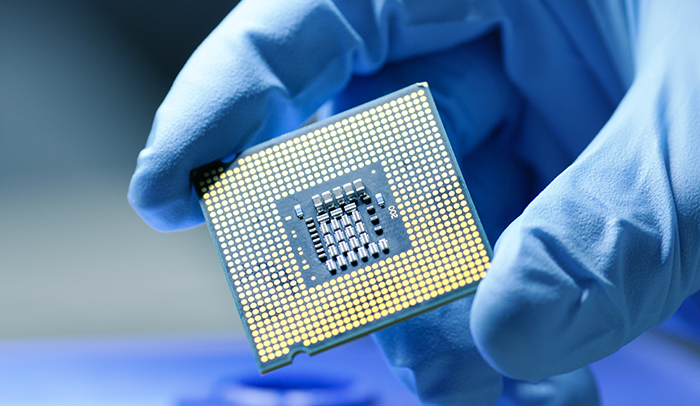5 Ways in which Automation is Enhancing Semiconductor Manufacturing
jessicaadison010 September 28, 2023Industrial automation is revolutionising semiconductor manufacturing, helping enhance precision, speed, and production. Data-driven insights, worker safety improvements, and advanced quality control are reshaping the landscape of the semiconductor industry. Additionally, resource optimisation and sustainability are gaining ground. The seamless collaboration of these industries is transforming how semiconductor integrated circuits are conceived, produced, and integrated for a tech-driven future.
Integrated circuits have been a driving force behind technological advancements for decades, powering everything from smartphones to self-driving cars. An essential component used in the making of an integrated circuit is the semiconductor. A semiconductor is a physical substance designed to manage and control the flow of current in electronic devices and equipment.

As the demand for faster, smaller, and more efficient devices grows, so does the need for precision and efficiency in semiconductor integrated circuit manufacturing. This is where the industrial automation industry steps in, revolutionising the way semiconductors are manufactured.
By driving innovation and efficiency to new heights, here are five ways in which automation is enhancing semiconductor manufacturing:
- Precision and Consistency
Semiconductor manufacturing involves intricate processes that demand an extraordinary level of precision. Automation systems utilise advanced robotics and precision control mechanisms to ensure that each step of the manufacturing process is executed with consistent accuracy. Further, automated systems can perform repetitive tasks without the risk of human error. This not only reduces defects but also leads to higher yields and improved overall quality of each semiconductor integrated circuit.
- Reduced Cycle Times
In the fast-paced world of technology, time-to-market is critical. The industrial automation industry has significantly reduced the cycle times required for semiconductor manufacture. Robots and automated equipment work around the clock, eliminating the need for extended breaks and minimising production downtime. This acceleration in manufacturing processes allows companies to respond more rapidly to market demands and technological shifts. Further, AI-powered preventative and predictive maintenance helps ensure smooth operation.
- Data-Driven Insights
Automation in semiconductor manufacturing is not just about machines performing tasks; it’s also about generating valuable data. Data logging analysers allow for logging of data related to the manufacturing processes. This data is then analysed to identify patterns, anomalies, and opportunities for optimization. Manufacturers can make informed decisions, fine-tuning their processes for maximum efficiency and yield. As a result, automation not only enhances the production line but also provides insights that drive continuous improvement.
- Flexibility and Customisation
The industrial automation industry has introduced a new level of flexibility to semiconductor manufacturing. With the ability to quickly reprogram robots and reconfigure production lines, manufacturers can switch between different products and processes seamlessly. This is especially important as the demand for customised integrated circuits increases. Automation allows manufacturers to adapt to changing customer requirements without undergoing lengthy retooling processes.
- Enhanced Worker Safety
Semiconductor manufacturing environments can be hazardous due to the use of chemicals, high temperatures, and complex machinery. Automation has led to significant improvements in worker safety by minimising human exposure to these risks. Automated systems can handle tasks in hazardous conditions, reducing the need for manual intervention. This not only protects workers but also ensures human contribution wherever required through a balanced collaboration between automotive machines such as robots and trained staff.
The integration of automation in semiconductor manufacturing has ushered in a new era of efficiency, precision, and innovation. The industrial automation industry has revolutionised the way integrated circuits are produced where Mitsubishi Electric India is playing a major role, resulting in reduced cycle times, enhanced product quality, and improved worker safety. As technology continues to evolve, automation will play a pivotal role in meeting the growing demand for faster, more powerful, and smaller devices.


